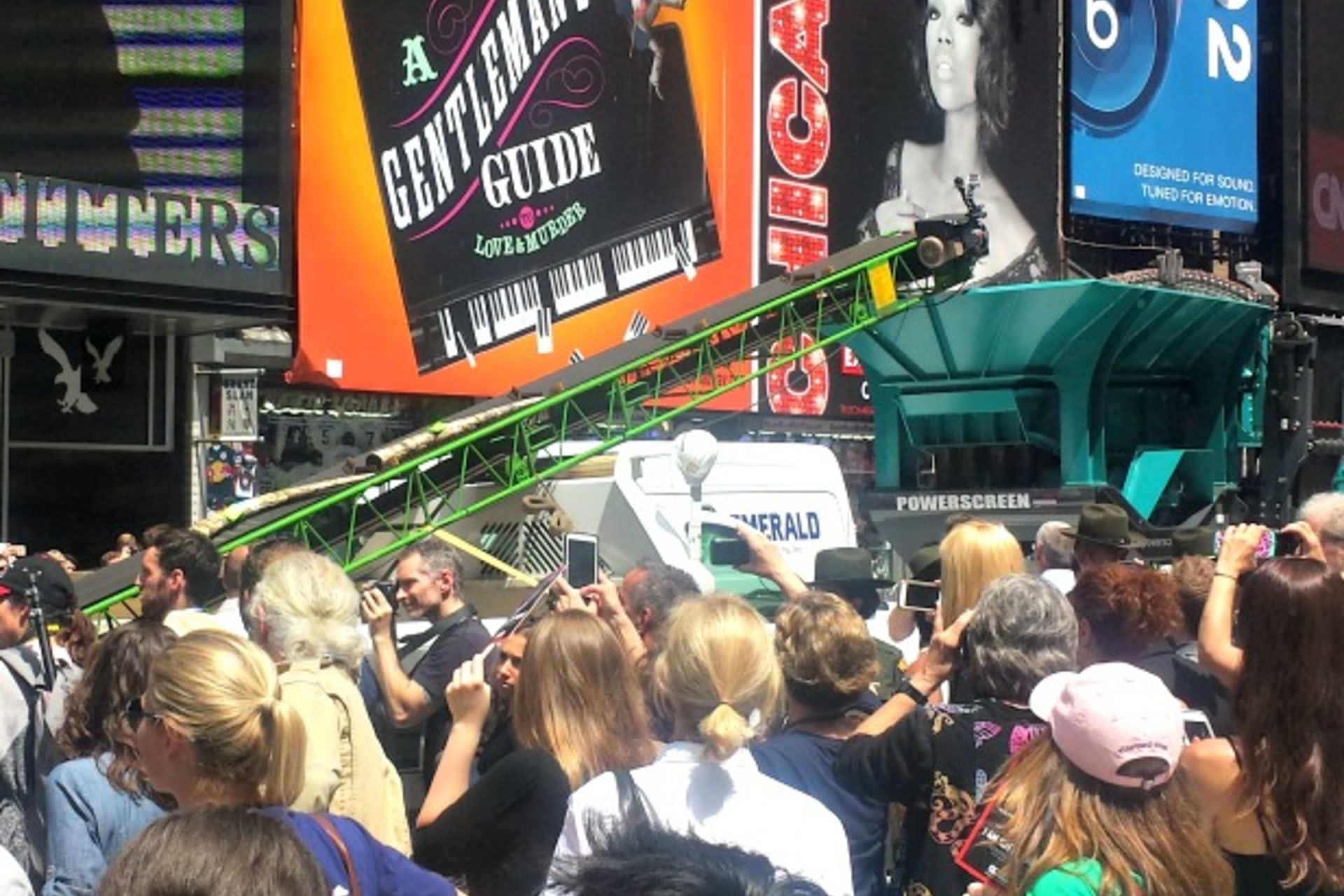#IvoryCrush in Times Square

By experts and staff
- Published
By
- Guest Blogger for John Campbell
This is a guest post by Allen Grane, research associate for the Council on Foreign Relations Africa Studies program.
On June 19, the U.S. Fish and Wildlife Service (FWS) crushed more than a ton of elephant ivory in the middle of Times Square, New York City. Speakers at the event included the Wildlife Conservation Society Executive Vice-President John Calvelli, FWS Director Dan Ashe, U.S. Secretary of the Interior Sally Jewell, and U.S. Customs and Borders Protection Commissioner R. Gil Kerlikowske. The speakers spoke about the security implications of elephant poaching and how the United States can assist to end the trade with its links to international crime and terrorism.
The security implications are real. As recently as June 16, poachers killed a park ranger and two soldiers in Garamba national park in the Democratic Republic of the Congo. This is just one example of how elephant poaching poses a serious threat to security throughout sub-Saharan Africa. Militant groups like Sudan’s Janjaweed and the Lord’s Resistance Army, as well as state-sponsored militaries like the FARDC (Forces Armées de la Republique démocratique du Congo) are known profiteers of the ivory trade. The money from poaching helps provide these organizations with continued funding to buy arms and supplies.
The poaching of elephants could only provide a financial incentive if there was a demand for elephant ivory. That demand is extremely high, with one kilogram of ivory going for $2100 to $3000 a kilogram on the black market. At this rate, a low estimate of the illegal value of the ivory crushed last Friday was just over $1.9 million.
The speakers at the “crush” spoke to what the United States is doing to combat the ivory trade. President Obama announced the formation of a Wildlife Trafficking Task Force in July 2013. It is focused on intercepting ivory and other wildlife products while in transit at major transportation and logistics hubs. The idea is to curb the trade by making it difficult for illicit networks to move animal products from point a to point b. The U.S. government is training international partners as part of this effort. Commissioner Kerlikowske in his speech referred to a group of Tanzanian customs agents training in the United States with sniffing dogs to locate ivory when being transported.
The government and the FWS are also trying to curb the demand in the United States. One way of doing this is by destroying confiscated ivory and animal products, the ivory crush being a high-profile example. However, as was outlined by the events speakers, in order to curb the demand, stricter laws must be passed in the United States. While several states, such as California, are currently reviewing legislature that would restrict the legal trade of ivory, the federal government implemented tighter restrictions on elephant ivory in June of 2014. It is anticipated that further federal restrictions will be adapted later this year.
To end the ivory trade, the United States and its partners must implement a multifaceted strategy that works to address the poaching, trafficking, and the demand. A high profile event such as the June 19 ivory crush in the center of America’s largest city helps build vital public support for the effort.